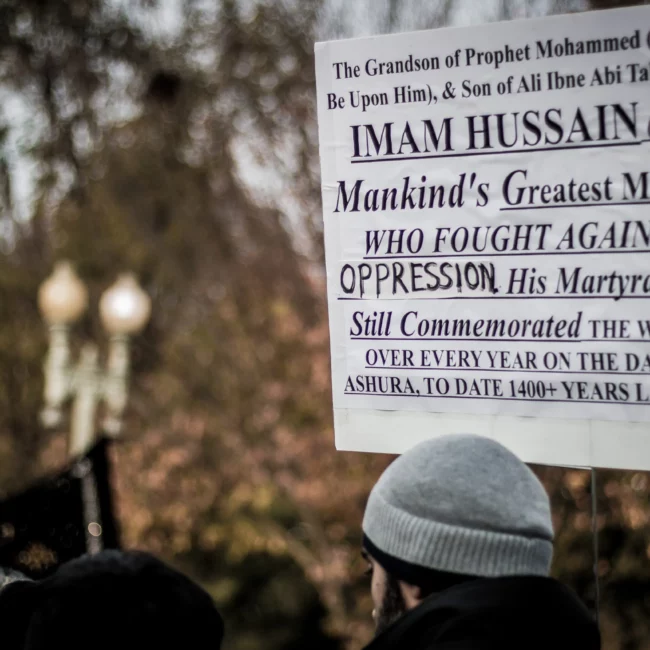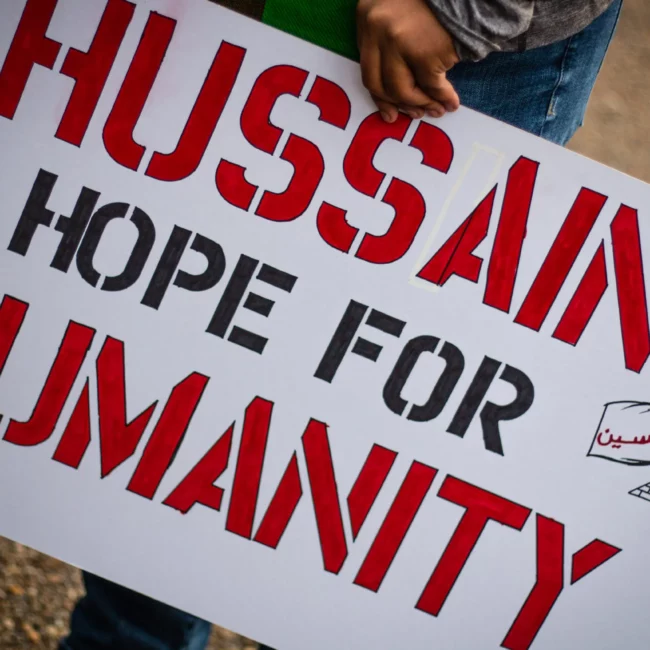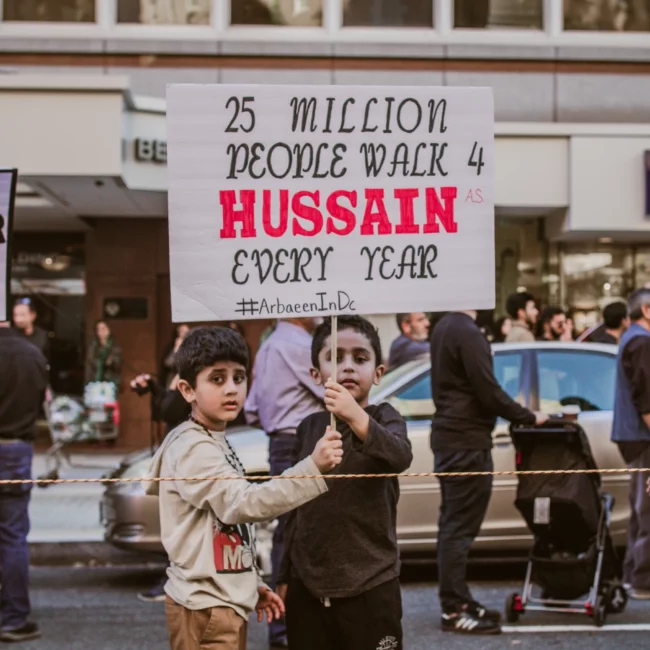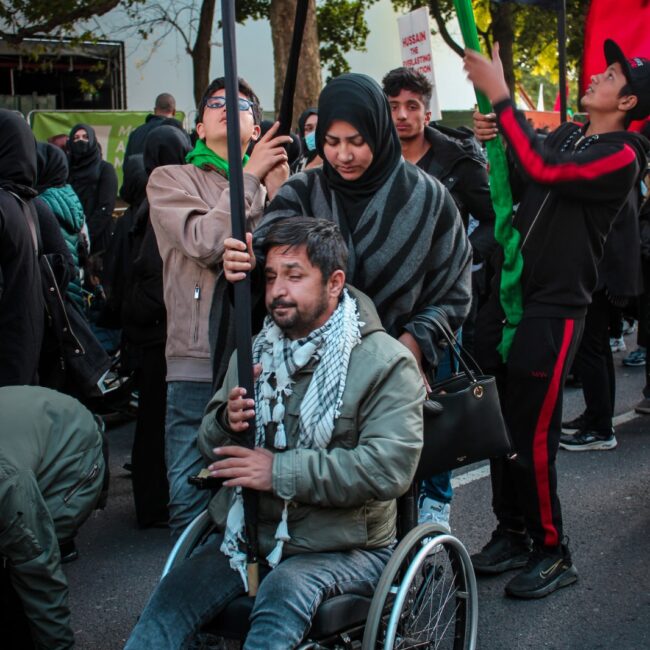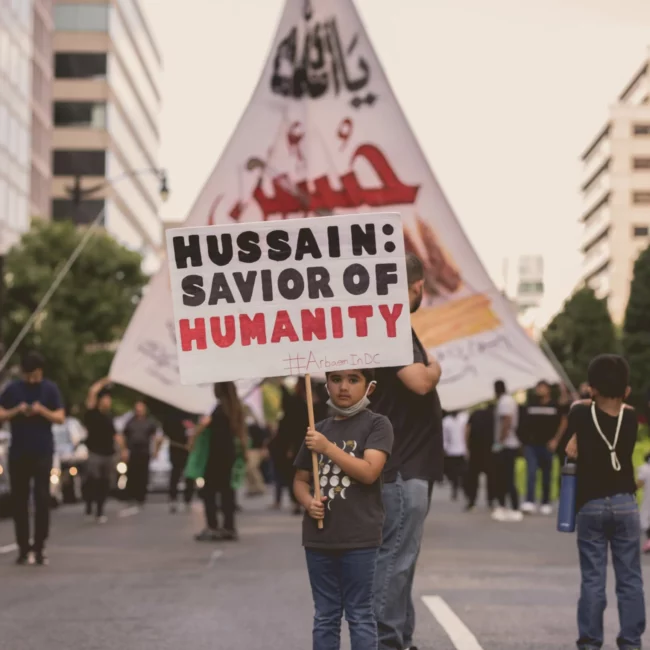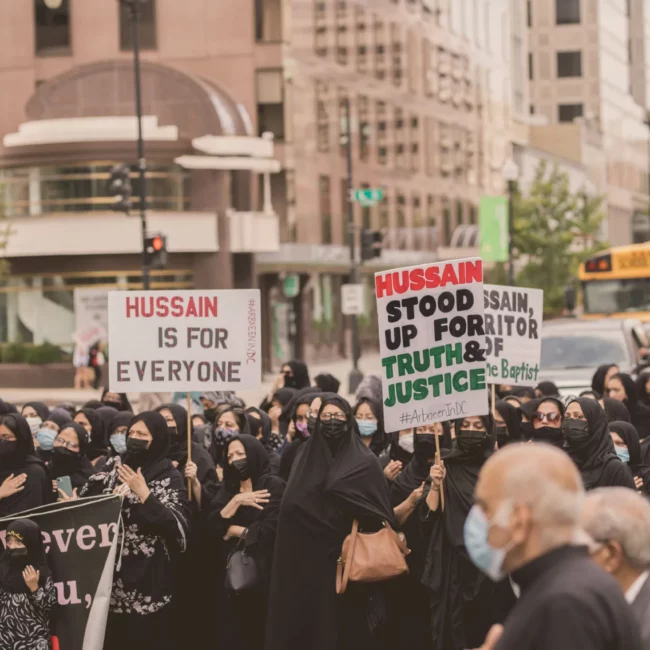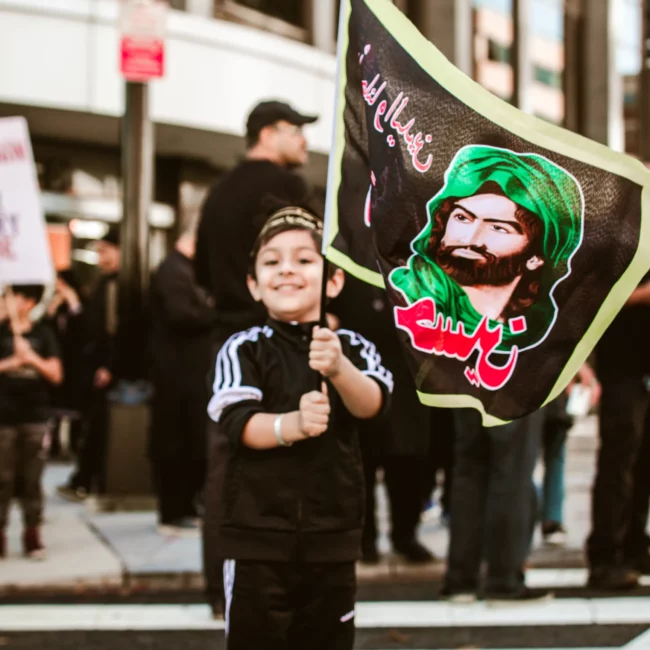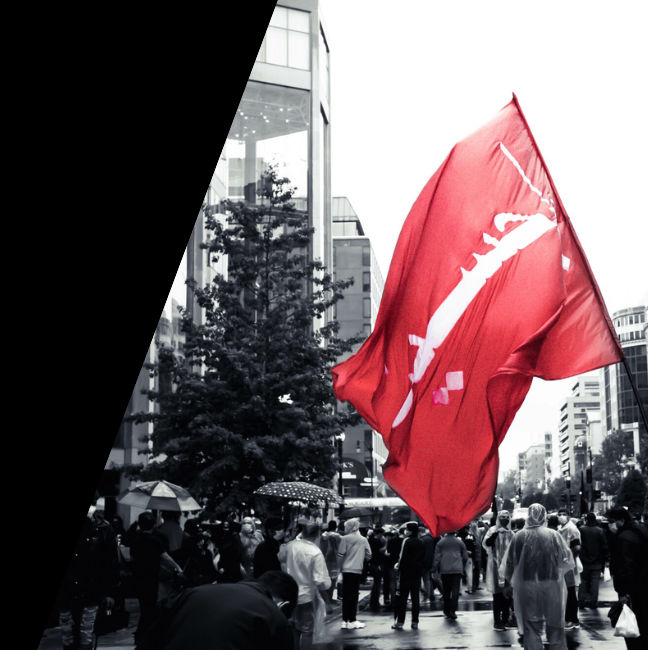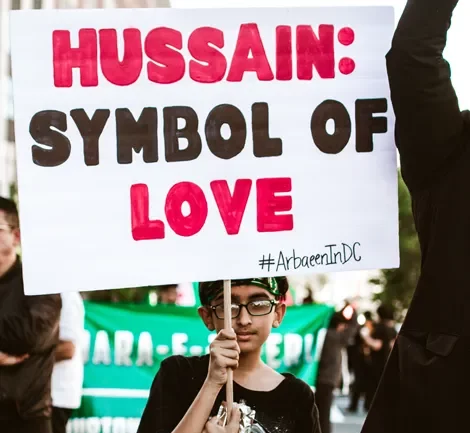Hussain’s Imprint
Who is Hussain?
Hussain, the grandson of the Prophet, the son of Fatimah and ‘Ali, was a man known for his intense spirituality. His spiritual compositions such as the Invocation of ‘Arafah reveal a deep sense of mystical connection to the Divine, one that the imperialists had no interest in or use for. Right after the demise of the Prophet Muhammad, his daughter Fatimah and his would be successor Ali, were the object of intense persecution and kept away from power through a coup that later on enabled the old enemies of Muhammad, the trading clan of the Bani Umayyah, to eventually take over power of the entire Muslim community and empire. The Prophet’s Family is known to have had a great deal of love and affection for the nations and people who had been forcefully conquered by the violent wars of the Arab conquests and they themselves did not participate in any of the wars of conquest nor waged any during the very few years they were allowed to rule. The Byzantine sources even speak of ‘Ali as “Ali the Persian” due to the mutual love between himself and the downtrodden Iranian nation conquered and enslaved by a racist regime that was bent on destroying its rich heritage.
The Ark of Hussain
Hussain left his native Medinah and sought refuge with his family in Mecca before receiving letters of support from the inhabitants of Kufah (present day Iraq) who inviting him to their city. On his way, his caravan was stopped and eventually attacked by an incredible Umayyad force of several thousands of soldiers. Hussain, his half-brother Abbas and many other male members of his family and companions were killed in the process of protecting the women and children who were eventually made prisoners and dragged to Damascus on a forced march in order to be sold as slaves. Five decades after the death of the Prophet Muhammad Muslims in power killed his grandson and were ready to sell his granddaughter Zaynab, the sister of Hussain, and the other ladies of his family into slavery. This was avoided by Zaynab shaming Yazid in front of his court for violating the most elementary codes of war and tribal honour.
Hussains tragic sacrifice attracted the devotion and love of many Muslims who were still loyal to the original vision of what Islam was supposed to be, as well as non-Muslims who throughout the centuries have participated in the yearly ceremonies for Imam Hussain during the month of Muharram. To this very day in cities like Isfahan (Iran) the Armenian Christian community holds some of the greatest mourning ceremonies for Hussain and Zoroastrians distribute food in his name as they call him “our brother-in-law”, given that he had married one of the daughters of the last Iranian king, Yazdegard III. It is in this spirit that we endeavor to bring to our society the spiritual legacy of Imam Hussain and his sacrifice for the sake of God.
Ali himself entertained close relations with non-Muslims treating them with brotherly affection. Historical records show that he was loved by the Jewish community of Babylon and the various Christian communities in Ashuristan, the old name of Iraq. Never imposing Islam on them in the few years that he ruled as a caliph, he believed in judging Jews according to Jewish law and Christians according to their own law codes.
For the Umayyads, the Arab supremacist trade clan that took power after Ali, Husssain was by his very existence a living threat undermining their very legitimacy. When their new ruler Yazid ibn Muawiah took over he gave Hussain a simple choice: allegiance or death.
This site uses cookies. Find out more about cookies and how you can refuse them.

